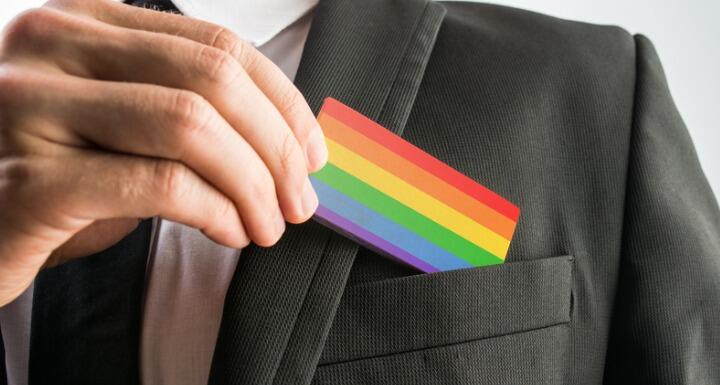Today, the Supreme Court of the United States ("SCOTUS") decided in Bostock v. Clayton County, Georgia that the protections of Title VII of the 1964 Civil Rights Act ("Title VII") extend to individuals who are discriminated against because of their sexual orientation or gender identity.
Background
The landmark ruling by SCOTUS, settles a contentious debate on whether employee protections under federal employment discrimination laws extend to those who are homosexual or transgender. We previously wrote on the background history and lower cases underpinning SCOTUS's landmark decision in Bostock here.
The Bostock decision settled a split in the federal appellate courts and resolved three separate cases where an individual was terminated after revealing that he or she was homosexual or transgender. The first case was out of the United States Court of Appeals for the 11th Judicial Circuit and involved Gerald Bostock who worked as a Child Welfare Services Coordinator in Clayton County, Georgia for over ten years. He was by all accounts an excellent employee. However, once he began participating in a gay recreational softball league, he was soon terminated for conduct "unbecoming" of a county employee. The second case was out of the United States Court of Appeals for the 2nd Judicial Circuit and involved a claim by Donald Zarda who worked for Altitude Express in New York as a skydiving instructor. Mr. Zarda mentioned to a female client that he was gay and was soon fired. Finally, the third case was out of the United States Court of Appeals for the 6th Judicial Circuit and involved Aimee Stephens who worked for R.G. & G.R. Harris Funeral Homes in Garden City, Michigan as a funeral director. Initially, Ms. Stephens presented as a man when she was hired, however, she later communicated to her employer that she wanted to live and work as a woman prior to having sex-reassignment surgery. Ms. Stephens was fired thereafter because she was no longer going to present as a man.
In all three cases, the plaintiffs alleged that they were unlawfully discriminated against because of their sex in violation of Title VII. Under Title VII, Congress prohibits discrimination in employment on the basis of "race, color, religion, sex, and national origin." While all three cases advanced to the United States Courts of Appeals, they received different results. In Mr. Bostock's case, the Eleventh Circuit dismissed Mr. Bostock's claim holding that Title VII does not prohibit an employer from discharging an employee on the basis of sexual orientation. Contrary to Mr. Bostock's case, the Second Circuit ruled that Title VII does prohibit an employer from firing an employee on the basis of sexual orientation. Similarly, the Sixth Circuit held in Ms. Stephens's case that Title VII prohibits an employer from firing an employee based on transgender status specifically stating that "discrimination on the basis of transgender and transitioning status is necessarily discrimination on the basis of sex."
The Court's Decision in Bostock
Today's opinion resolves the issue of whether Title VII's prohibition against discrimination on the basis of sex encompasses discrimination on the basis of sexual orientation or gender identity. The 6-3 decision that expands the protections of Title VII was authored by Justice Gorsuch, the successor to Justice Antonin Scalia, who was joined by Chief Justice Roberts, and Justices Ginsburg, Breyer, Sotomayor, and Kagan. Justice Alito filed a dissenting opinion that is joined by Justice Thomas, and Justice Kavanaugh filed a separate dissent. The majority's opinion starts by discussing the significance of the Civil Rights Act of 1964. Justice Gorsuch writes that "[s]ometimes small gestures can have unexpected consequences . . . [a]n employer who fires an individual for being homosexual or transgender fires that person for traits or actions it would not have questioned in members of a different sex. Sex plays a necessary and undisguisable role in the decision, exactly what Title VII forbids."
SCOTUS's opinion in Bostock assumed that Congress meant in 1964 for the term "sex" to refer "only to biological distinctions between male and female." However, Justice Gorsuch notes, "that's just a starting point" for the Court. Focusing more on the text of Title VII rather than the legislative intent, the Court held that Title VII prohibits employers from taking certain actions "because of" sex. Justice Gorsuch, on behalf of the majority, states that "[f]or an employer to discriminate against employees for being homosexual or transgender, the employer must intentionally discriminate against individual men and women in part because of sex. That has always been prohibited by Title VII's plain terms – and that should be the end of the analysis." The Court's decision in Bostock makes clear that an employer who intentionally fires an employee based in part because such individual is homosexual or transgender violates the protections afforded to such individual under Title VII.
Conclusion
The Court's decision in Bostock is indeed a landmark. Presently, 22 states, two territories, and the District of Columbia have laws that expressly prohibit employment discrimination based on sexual orientation and gender identity. Two other states have expressly interpreted existing laws prohibiting discrimination based on sex to include sexual orientation and/or gender identity, while one other state has a law that prohibits discrimination based on sexual orientation only. The remaining 25 states and three territories do not have laws that expressly prohibit employment discrimination based on sexual orientation or gender identity. As a result of the Court's decision in Bostock, individuals in all states and territories are now afforded legal protection against employment discrimination that is based on sexual orientation and/or gender identity by filing a charge with the Equal Employment Opportunity Commission or subsequently pursuing a private action in the federal courts.
While many will consider SCOTUS's decision in Bostock as a historic win for the LGBTQ community, others will view the Court's opinion as going beyond its reach and crossing into the purview of one of its co-equal branches of government. One need not look any further than Justice Alito's dissent in Bostock for such support. There Justice Alito wrote "[t]here is only one word for what the Court has done today: legislation. The document that the Court releases is in the form of a judicial opinion interpreting a statute, but that is deceptive."
For HR Professionals, the Court's decision is clear, employers cannot discriminate against employees on the basis of sexual orientation or gender identity. Many employers will want to consider whether they need to update employment handbooks or policies to stay in compliance with federal law. Employers should also continue to conduct periodic training of employees and supervisors and should include an update on the Title VII changes in an effort to prevent employment discrimination on the basis of sexual orientation or gender identity.








